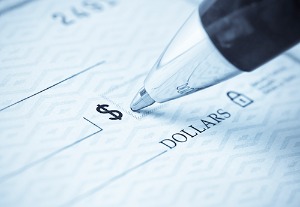Direct Deposit: What Is It and How Do I Use It?
6/10/24 | Emily Knuteson, Relationship Banker

Direct deposit is a convenient way to receive your paycheck right into your bank account. Many companies and individuals use direct deposit services to avoid sending or receiving mailed checks, to make sure payroll checks get sent on time and correctly, and to keep all payroll expenses organized.
What is Direct Deposit
What exactly is direct deposit though? According to Greenlight, direct deposit is one option to receive your paycheck. This option directly and digitally sends earned funds into your linked bank account. Direct deposit digitally sends your paycheck to your bank account, so before you set up direct deposit, you will need to open a bank account or have an account already set up.
Direct deposit needs to be set up between you and your employer and usually gets set up within the first few days at a new job. Employers will ask for your account number and routing number, bank address and physical address. The information provided is then used to connect the payroll to your bank account, making payday funds available on time with ease.
Why Should I Use Direct Deposit
So why use direct deposit over cashing a mailed check? Not only does direct deposit save time and effort when getting your paycheck, you don’t have to worry about your paycheck getting lost or stolen while in the mail. Direct deposit also allows you to control where your paycheck goes. You get to choose the bank, the account, and get quicker access to funds. When you use a paper check you must endorse the check, deposit the check, and then wait for funds to clear before getting access to them.
Budgeting Tips
It is important to budget your income so you can pay for all your expenses until the next payday. Here are some budgeting tips to get you started.
- Create savings goals. You don’t want to get paid and spend it all right away. Setting aside money for the future can help with large purchases or even emergencies.
- Create budget categories for your paycheck. These can include savings, gas money, money to do things with friends, extracurricular activities, and more. Putting money aside into categories helps remind you to only spend what you have.
- Differentiate between needs and wants. Starting a job and getting paychecks opens a whole new world of things you can do and stuff you want to buy. It is important to separate money for needs, like your gas money, and wants, like getting ice cream with your friends.
- Don’t spend money you don’t have. Getting paid on a schedule is nice because you know when your next paycheck will come, however many people get into the habit of spending their paycheck before they have it. Budget wisely and track your expenses so you don’t spend money you don’t have.
Starting a new job, setting up direct deposit services, and remembering to budget can seem like a lot, but use your resources like family and your bank to help you. Stop by any of our branches today to receive help with setting up direct deposits or even advice to create a plan to budget your paycheck.
ABOUT THE AUTHOR
Emily Knuteson is a Relationship Banker at Altabank. She loves exploring marketing concepts and leaning more about the world of banking.
Emily Knuteson is a Relationship Banker at Altabank. She loves exploring marketing concepts and leaning more about the world of banking.
